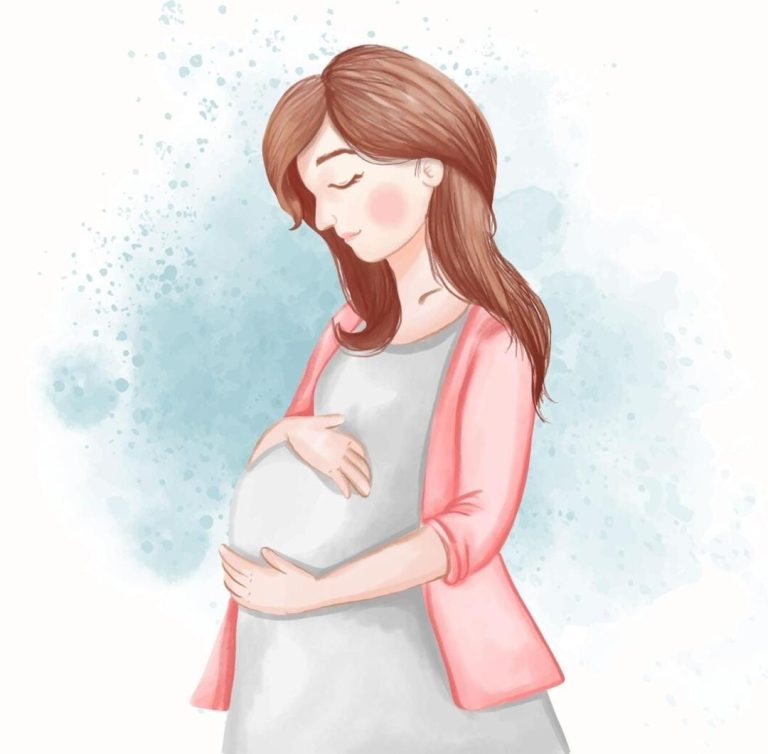
Understanding Postpartum Period: When Will Your Period Return After Delivery?
Bringing a new life into the world is a monumental experience, filled with numerous changes and adjustments. Among these changes is the return of your menstrual cycle after giving birth. Understanding when your period might return can help you prepare for this next phase of postpartum life. Here’s what you need to know about your period after delivery.
When Will Your Period Return?
The timing of your first postpartum period can vary widely among women. Several factors influence this timing, including:
-
- Breastfeeding: One of the most significant factors affecting the return of your period is whether you are breastfeeding. Lactation produces prolactin, a hormone that suppresses ovulation. Women who exclusively breastfeed might not see their period return for several months, sometimes not until they begin to wean their baby or introduce solid foods. This can be anywhere from six months to over a year postpartum.
-
- Formula Feeding: If you are not breastfeeding or if you supplement with formula, your period may return sooner. Some women might see their period return as early as six to eight weeks after delivery.
-
- Individual Differences: Every woman’s body is different, and other individual factors can play a role. Your overall health, stress levels, and how your body recovers from childbirth can all influence the timing.
What to Expect from Your First Postpartum Period
When your period does return, it might be different from what you experienced pre-pregnancy. Here are some common changes women notice:
-
- Heavier or Lighter Flow: Your first few periods might be heavier or lighter than what you’re used to. Over time, they usually return to your pre-pregnancy norm.
-
- Irregular Cycles: It’s common to experience irregular cycles initially. Your body is adjusting to the hormonal shifts post-pregnancy, so don’t be alarmed if your cycles are not regular right away.
-
- Cramps and Discomfort: You might experience more intense cramps or different types of discomfort compared to pre-pregnancy periods. This can be due to the uterus contracting as it returns to its normal size.
-
- Lochia vs. Period: In the weeks immediately following childbirth, you will experience lochia, which is vaginal discharge consisting of blood, mucus, and uterine tissue. Lochia is not a period, but it’s essential to differentiate between the two. Lochia can last up to six weeks and changes in color and consistency over time.
Managing Your Postpartum Period
Here are some tips to help manage your postpartum period:
-
- Be Prepared: Keep a stock of menstrual products on hand, such as pads or menstrual cups, especially if you suspect your period might return soon.
-
- Stay Hydrated: Drinking plenty of water can help manage bloating and maintain overall health.
-
- Balanced Diet: Eating a balanced diet rich in iron can help replenish any iron lost due to heavy menstrual bleeding.
-
- Pain Relief: Over-the-counter pain relievers can help manage cramps and discomfort. Always consult your healthcare provider before taking any medication, especially if you are breastfeeding.
-
- Monitor Your Cycle: Keep track of your menstrual cycle to understand your body’s new rhythm and identify any irregularities that may need medical attention.
When to See a Doctor
While variations in your postpartum period are normal, there are certain signs that warrant a visit to your healthcare provider:
-
- Extremely Heavy Bleeding: If you’re soaking through a pad or tampon in an hour or less, this could indicate an issue.
-
- Severe Pain: If you experience severe pain that doesn’t respond to over-the-counter medications, it’s best to seek medical advice.
-
- Signs of Infection: Foul-smelling discharge, fever, or severe abdominal pain can be signs of an infection and should be addressed immediately.
-
- Absence of Period: If you haven’t had your period return within a year of giving birth and are not breastfeeding, consult your healthcare provider.
Conclusion
The return of your period after delivery is a unique experience for every woman. Understanding the factors that influence its return and knowing what to expect can help you navigate this phase with confidence. Remember to take care of yourself, stay in tune with your body, and seek medical advice if you have any concerns. Embrace this new chapter of motherhood with knowledge and preparedness.
Looking for something more to Read ?
I’ve been in the helping early parents from last 10 years and we’ve vetted more than a 500+ parents and couples along the way. We’ll connect your exceptional capabilities to help bring your parenting knowledge and how to take care of the baby.

I have not checked in here for some time because I thought it was getting boring, but the last few posts are good quality so I guess I?¦ll add you back to my daily bloglist. You deserve it my friend 🙂
Thank you for such a beautiful comment!